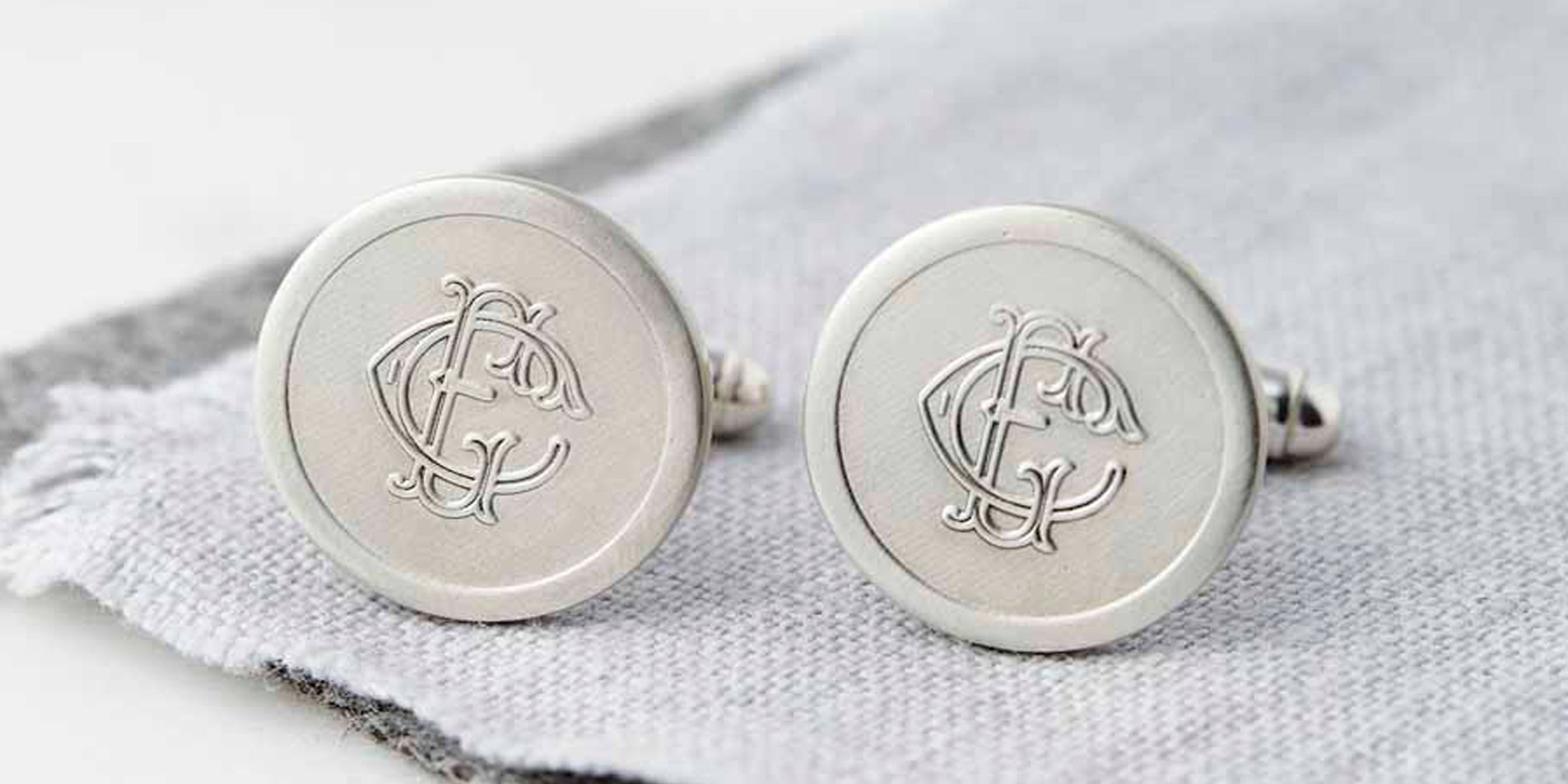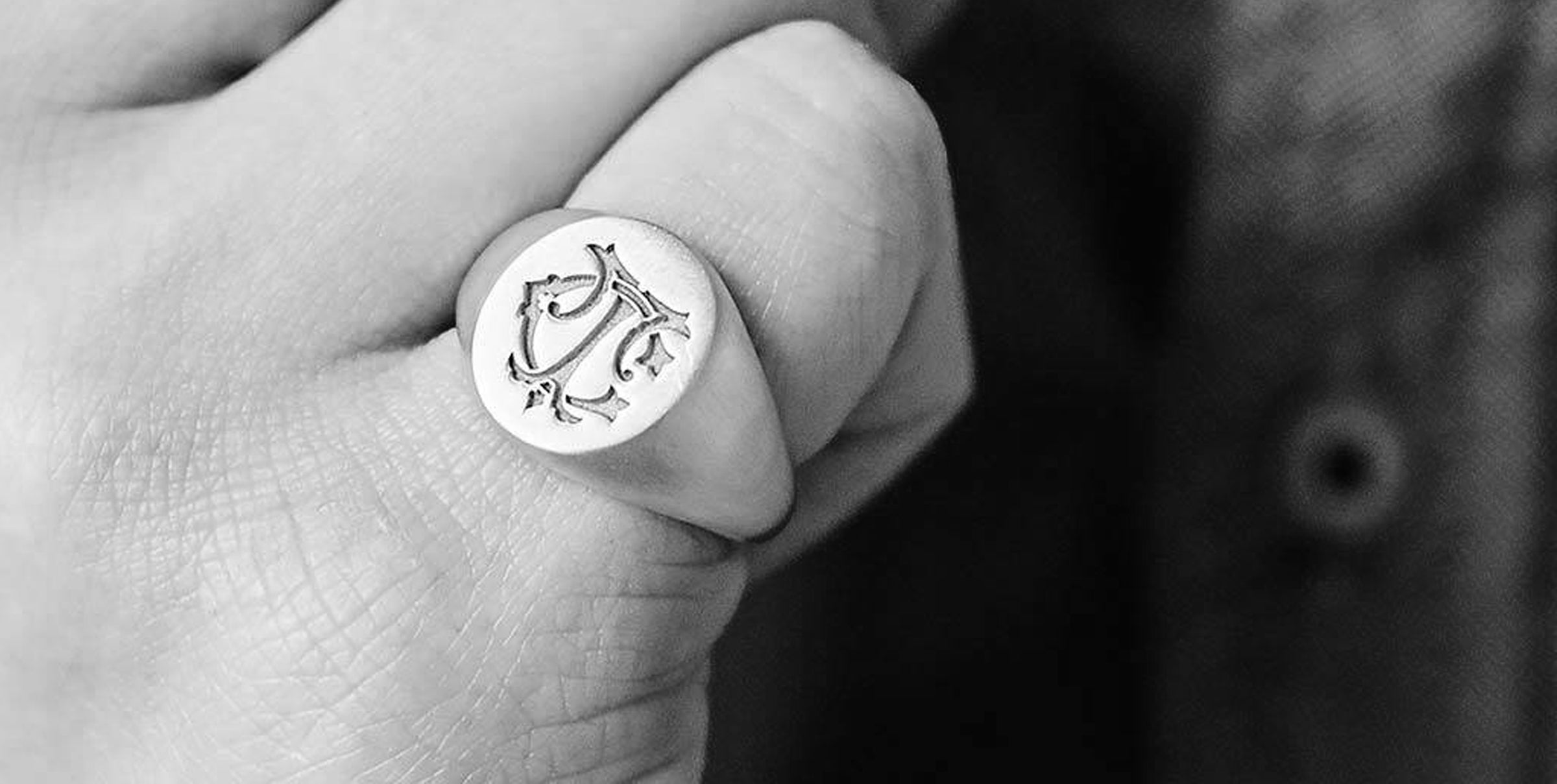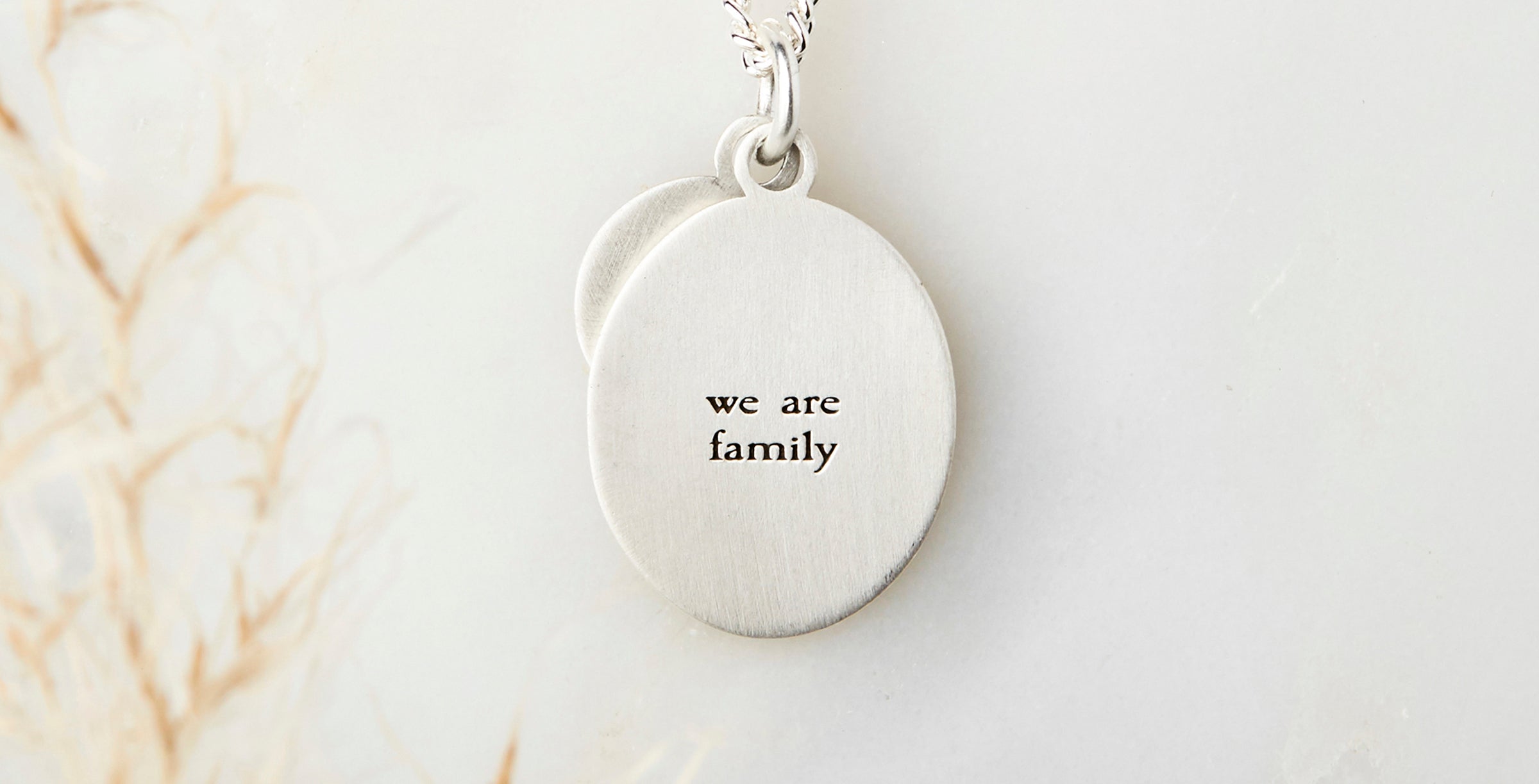
The History of Monograms in Jewellery
Monograms have adorned everything from royal seals to personal stationery, but perhaps their most enduring use has been in jewellery. These personalised designs have a rich history that spans centuries and cultures.
What are Monograms?
A monogram is a motif made by overlapping or combining two or more letters to form one symbol.
Discover our collection of Monogram Jewellery here
Ancient Beginnings
The concept of monograms dates back to ancient times.
Some of the earliest monograms were found on coins from ancient Greek cities, dating back to 350 BC. These monograms typically represented the city's name or the ruler.
Medieval Monograms:
From Royalty to Artisans
During the Middle Ages, monograms became symbols of power and identity. Charlemagne (742-814 AD) used a monogram that became a model for future royalty, and artisans began using monograms as signatures on their work, a practice that continues today.
Renaissance:
The Rise of Personal Monograms
The Renaissance saw monograms become more personal and decorative.
Albrecht Dürer, the famous German artist, used his 'AD' monogram as a signature on his artworks, one of the earliest examples of an artist's branding.
Victorian Era:
Romance and Sentimentality
Whilst the use of monograms in jewellery began in the Middle Ages, it gained significant popularity during the Victorian era (1837-1901), where lockets with engraved monograms became popular gifts between lovers and intertwining the initials of a couple emerged as a romantic symbol. Queen Victoria herself was fond of jewels bearing the intertwined initials 'VА', for Victoria and Albert.
Art Nouveau Period:
Artistic Flair
Monograms in jewellery became more elaborate and artistic during this period, often incorporating floral motifs and asymmetrical designs.
Early 20th Century:
Simplicity and Elegance
The Art Deco period (1920s-1930s) saw a return to more geometric and streamlined monogram designs in jewellery.
Types of Monogrammed Jewellery
Throughout history, various types of jewellery have featured monograms:
- Signet Rings: Perhaps the oldest form of monogrammed jewellery, used for sealing documents.
- Cufflinks: Monogrammed cufflinks became a staple of men's jewellery in the 19th century.
- Pendants: Standalone monogram designs became popular in the 20th century.
- Brooches: Especially popular during the Victorian and Edwardian eras.
- Lockets: Often containing photos and engraved with monograms
Monogram Etiquette:
A Brief History
Interestingly, the 'correct' way to display a monogram has changed over time:
Traditionally, a man's monogram would read in order (first, middle, last initial), while a woman's would place the last initial in the centre, larger than the others.
Married couples often used duograms with the wife's initial first, and the man's initial following.
In the early 20th century, etiquette books devoted entire chapters to the proper use of monograms!
Modern Revival:
Personalisation in the Digital Age
While monograms fell out of fashion for a time in the late 20th century, they've seen a resurgence in recent years.
The desire for personalised, unique items has brought monograms back into style with modern technology allowing for more intricate and varied monogram designs in jewellery.
Monograms in jewellery, serve as personal signatures, declarations of love, and connections to family heritage. As we continue to seek ways to make our accessories uniquely our own, it seems certain that monograms will continue to play a role in the world of jewellery design.
Whether you're wearing a family heirloom with a generations-old monogram or considering a personalised piece of your own, remember that you're participating in a tradition that spans centuries. In a world of mass production, a monogrammed piece of jewellery remains a deeply personal statement – a small, elegant reminder of identity, love, and individual style.



